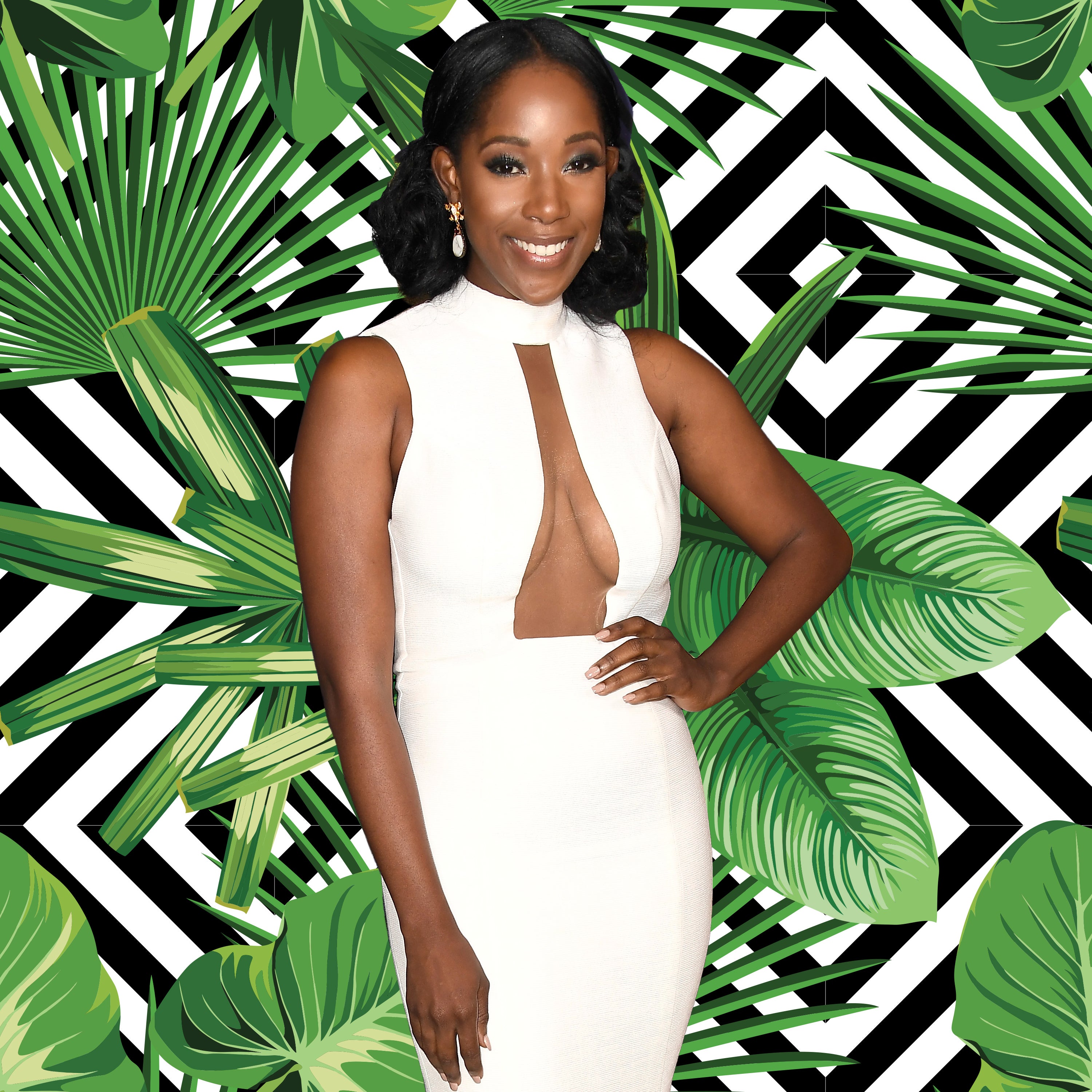
“Rising star” is kind of a played out term. If we’re going to be real, millennials are all about showing receipts. And Ashley Blaine Featherson has got them.
The 29-year-old has been consistently acting since her days at Howard University, but her most recent role as Joelle Brooks on Dear White People has catapulted her to the mainstream. If she seemed familiar before the Justin Simien movie and Netflix series, it’s probably because of Black and Sexy TV, a platform where she made her own role in a Hollywood that felt limiting.
“I would probably say my first big break was probably Hello Cupid,” Featherson told ESSENCE. “That’s ironic because that was something I created for myself. Lena [Waithe] and I got together and collaborated with Black and Sexy TV. It was a time in my career where I felt like I wasn’t getting the opportunities I wanted… so I said, ‘I’m going to have to come up with something for myself.'”
There’s something to be said for having enough gumption to create a role when they aren’t coming your way or speaking to your soul. And while Featherson was smart enough to do so, she was also fortunate to have a dope circle of colleagues and friends —like Lena Waithe, Issa Rae and Nia Jervier— along the way.
And real life isn’t so far from art. In her latest role as everyone’s friend-in-their-head Joelle, she plays the bestie to protagonist Samantha White (Logan Browning) who’s loyal but also in love with a man who’s in love with Sam. Joelle transcends color, in terms of being an honest friend, but is also unapologetically outspoken and conscious.
“I can’t tell you how many people, especially White people, love the show on Twitter and have been like ‘Hey, I’m so glad I watched this show. Your character really spoke to me’,” she said.
“Next season we’ll definitely see what’s going on with Joelle’s love life. We’ll definitely delve into her back story, which so many people are up in arms about.”
Since Dear White People has wrapped, Featherson has spent her time writing and looking into new projects. And with a renaissance of Black programming in Hollywood, sky’s the limit on where she’ll land.
“I think that it feels better than it did before,” Featherson said about the current state of film and TV production. “Not even being a Black artist, but a Black person. I turn on the TV screen and go to the movies and feel slightly more represented.”
“We’re still not able to walk into these meetings with executives or agencies or production companies and get our projects made without a fight,” she added. “That’s different from our White counterparts, and that’s just a fact…. We have a long way to go to being considered equal. Because we’re not.”